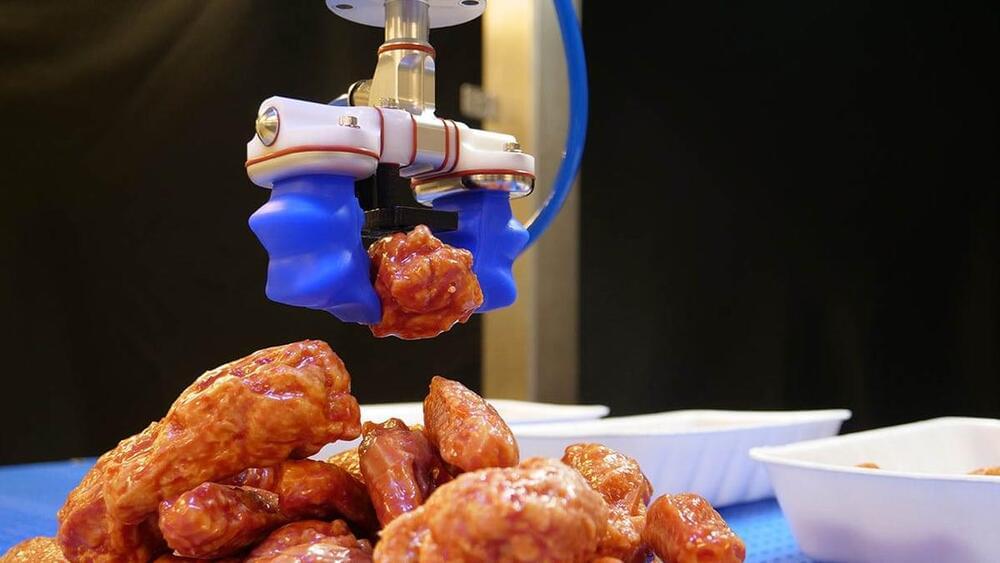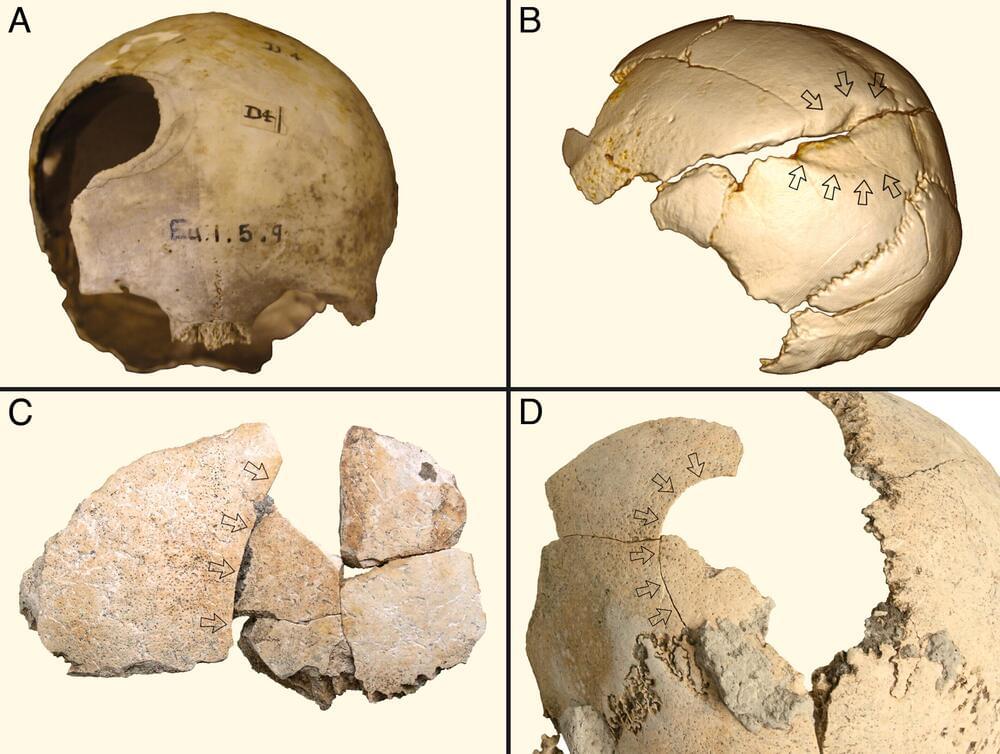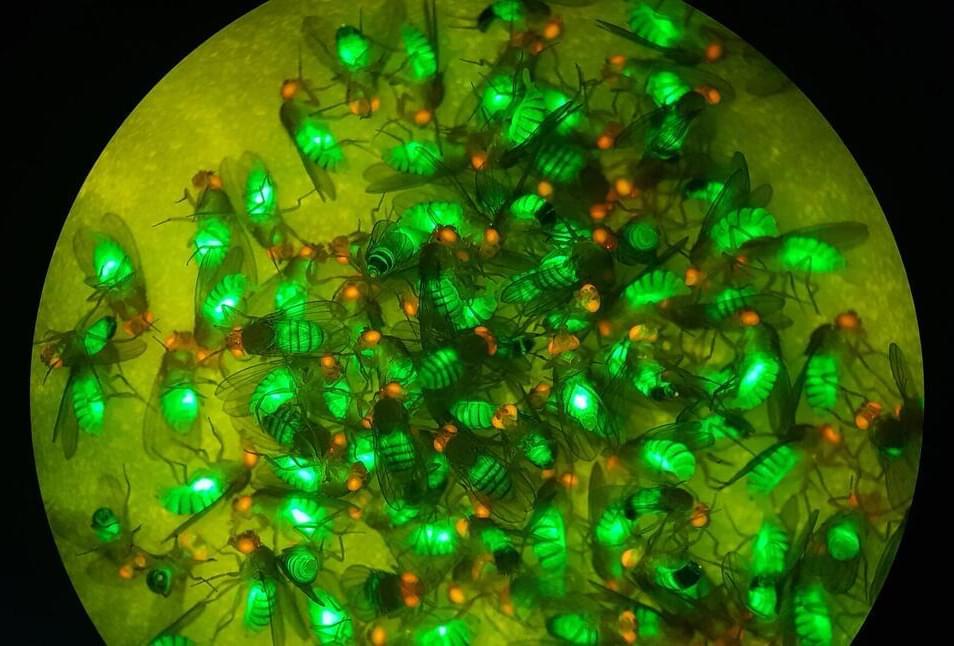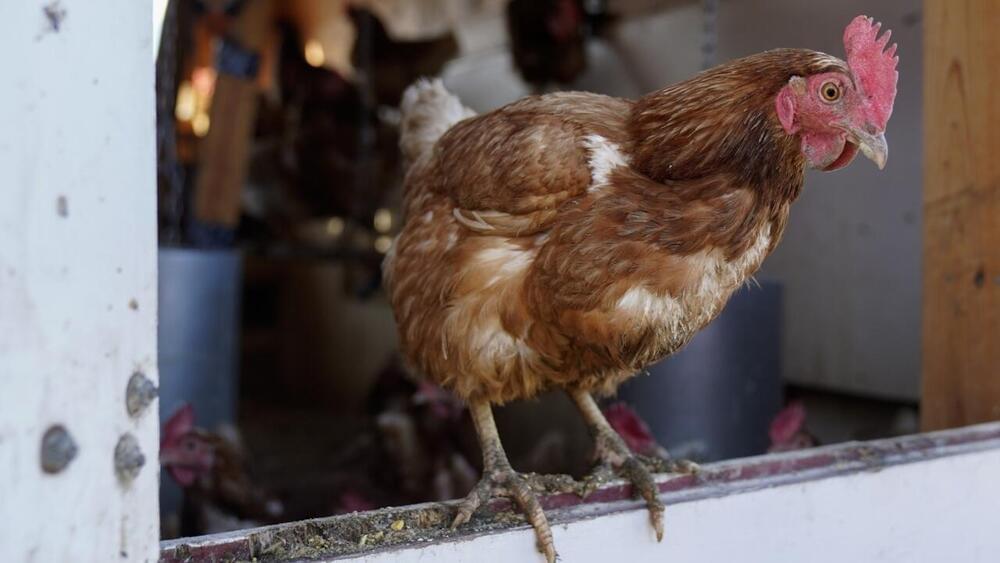The chipmaker is showcasing how a robotics startup is using its simulation platform to train robots to pick up food like pieces of chicken.



Violence and warfare were widespread in many Neolithic communities across Northwest Europe, a period associated with the adoption of farming, new research suggests.
Of the skeletal remains of more than 2,300 early farmers from 180 sites dating from around 8,000—4,000 years ago to, more than one in ten displayed weapon injuries, bioarcheologists found.
Contrary to the view that the Neolithic era was marked by peaceful cooperation, the team of international researchers say that in some regions the period from 6000BCE to 2000BCE may be a high point in conflict and violence with the destruction of entire communities.
It generates energy by forcing the stream to form a vortex.
Without employing any blades, the transportable hydraulic turbine SETUR from Vortex Hydrokinetics serves as a power source. The water source could be rivers, tidal streams, ocean currents, or even canals.
The portable equipment is lightweight as a result of the 3D-printed bladeless hydraulic turbine.
Vortex Hydrokinetics.
As reported by Designboom, the turbine, shaped like an atomic bomb, generates energy by forcing the stream to form a vortex and then using that vortex as a source of current. According to the design team, the cost-effective SETUR can be used both independently and as part of a multi-unit hydropower farm.

Scientists continue to expand the technological frontiers of CRISPR, along with its enormous potential, in areas ranging from human health to global food supplies. Such is the case with CRISPR-based gene drives, a genetic editing tool designed to influence how genetic elements are passed from one generation to the next.
Gene drives designed for mosquitoes have the potential to curb the spread of malarial infections that cause hundreds of thousands of deaths each year, yet safety issues have been raised because such drives can spread quickly and dominate entire populations. Scientists have explored the principles governing the spread of gene-drive elements in targeted populations such as mosquitoes by testing many different combinations of components that constitute the drive apparatus. They have found, however, that there’s still more to explore and that key questions remain.
In the journal Nature Communications, University of California San Diego researchers led by former Postdoctoral Scholar Gerard Terradas, together with Postdoctoral Scholar Zhiqian Li and Professor Ethan Bier, in close collaboration with UC Berkeley graduate student Jared Bennett and Associate Professor John Marshall, describe the development of a new system for testing and developing gene drives in the laboratory and safely converting them into tools for potential real-world applications.

For millions of years, nature has basically been getting by with just a few elements from the periodic table. Carbon, calcium, oxygen, hydrogen, nitrogen, phosphorus, silicon, sulfur, magnesium and potassium are the building blocks of almost all life on our planet (tree trunks, leaves, hairs, teeth, etc). However, to build the world of humans—including cities, health care products, railways, airplanes and their engines, computers, smartphones, and more—many more chemical elements are needed.
A recent article, published in Trends in Ecology and Evolution and written by researchers from CREAF, the Universitat Autònoma de Barcelona (UAB) and the Spanish National Research Council (CSIC), warns that the range of chemical elements humans need (something scientifically known as the human elementome) is increasingly diverging from that which nature requires (the biological elementome).
In 1900, approximately 80% of the elements humans used came from biomass (wood, plants, food, etc.). That figure had fallen to 32% by 2005, and is expected to stand at approximately 22% in 2050. We are heading for a situation in which 80% of the elements we use are from non-biological sources.

Researchers at Chalmers University of Technology have made a ground-breaking discovery in the field of synthetic DNA, using AI to control the cells’ protein production.
This new technology could revolutionize the way we produce vaccines, drugs for severe diseases, and alternative food proteins by making the process faster and significantly cheaper than current methods.
The process of gene expression is fundamental to the function of cells in all living organisms. In simple terms, the genetic code in DNA is transcribed into the molecule messenger RNA (mRNA), which tells the cell’s factory which protein to produce and in what quantities.

A lethal bird flu outbreak that has been circling the globe since 2021 peaked in Japan this week, as an agriculture ministry official said on Tuesday the country plans to cull more than 10 million chickens at risk of exposure to the virus.
Flu is a common annual illness among wild birds yet the H5N1 strain now sweeping Japan is uniquely contagious and deadly. It poses such high risk to farmed birds, such as chickens and turkeys, that a single infection on a farm condemns the entire flock to be killed. As outbreaks in Japan have reached a record high, the cull is the largest ever planned for the yearly flu season that runs from October to May.
Around the globe, record-breaking death tolls due to the virus are becoming the norm. In the US, more states than ever before have reported instances of bird flu with an all-time high of nearly 58 million poultry affected as of January 2023.

Plants are often thought of as sources of food, oxygen, and decoration, but not as a source of electricity. However, scientists have discovered that by harnessing the natural transport of electrons within plant cells, it is possible to generate electricity as part of a green, biological solar cell. In a recent study published in ACS Applied Materials & Interfaces, researchers for the first time used a succulent plant to create a living “bio-solar cell” that runs on photosynthesis.
Photosynthesis is how plants and some microorganisms use sunlight to synthesize carbohydrates from carbon dioxide and water.
Our immune system is built to detect foreign invaders, pathogens, and debris, and then eliminate them. So how does it deal with the trillions of microbial cells that make a home for themselves in our gastrointestinal tract? Scientists have now found an answer to that question, and the evidence they revealed has also changed what we know about the interactions between immune receptors and a protein that helps move bacteria around, called flagellin. The findings have been reported in Science Immunology.
There are many beneficial microbes in the human gut microbiome, and we need many of those microorganisms to help us break down food and absorb nutrients, for example. But there are also pathogenic gut germs. The immune system can recognize those pathogenic microbes with different receptors, one of which is called toll-like receptor 5 (TLR5). TLR5 attaches to flagellin, a protein found in the flagellum of bacteria, a structure that propels bacterial cells. When TLR5 binds to flagellin, an inflammatory response is triggered.
Leading The Global Fight Against Antimicrobial Resistance (AMR) — Dr. Haileyesus Getahun, MD, MPH, Ph.D., Director of AMR Global Coordination, World Health Organization (WHO)
Dr. Haileyesus Getahun, MD, MPH, Ph.D. is Director of AMR (Antimicrobial Resistance) Global Coordination at the World Health Organization (WHO) and the Quadripartite (FAO/UNEP/WHO/WOAH) Joint Secretariat on Antimicrobial Resistance. (https://www.who.int/about/people/biography/dr-haileyesus-getahun)
Antimicrobial resistance (AMR) threatens the effective prevention and treatment of an ever-increasing range of infections caused by bacteria, parasites, viruses and fungi. AMR occurs when bacteria, viruses, fungi and parasites change over time and no longer respond to medicines making infections harder to treat and increasing the risk of disease spread, severe illness and death. As a result, the medicines become ineffective and infections persist in the body, increasing the risk of spread to others. Over 1.27 million deaths worldwide were attributed to AMR infections in 2019. Antimicrobials — including antibiotics, antivirals, antifungals and antiparasitics — are medicines used to prevent and treat infections in humans, animals and plants. Microorganisms that develop antimicrobial resistance are sometimes referred to as “superbugs”.
Dr. Getahun coordinates the global One Health multi-sectoral response to AMR across the human, animal, plant, food, feed and environment sectors; directs the Secretariat of the Global Leaders Group on AMR (https://www.amrleaders.org) currently co-chaired by Their Excellencies Prime Minister of Barbados and Bangladesh; facilitates the research and development agenda through priority setting and gap analysis, and provides policy and programmatic guidance to nurture and scale up evidence-based interventions to enhance antimicrobial stewardship activities, awareness and behavioral change across all sectors.
Dr. Getahun was formerly the Director of the Secretariat of the United Nations Interagency Coordination Group on Antimicrobial Resistance (IACG) which was established by the UN Secretary General and released the 2019 ground-breaking report on how to respond to the global AMR crisis. Before that he worked in the Global TB Program of WHO leading its work on TB/HIV and community care.